By Chris Anthony Far from the rolling plains of Alabama, the tiny...
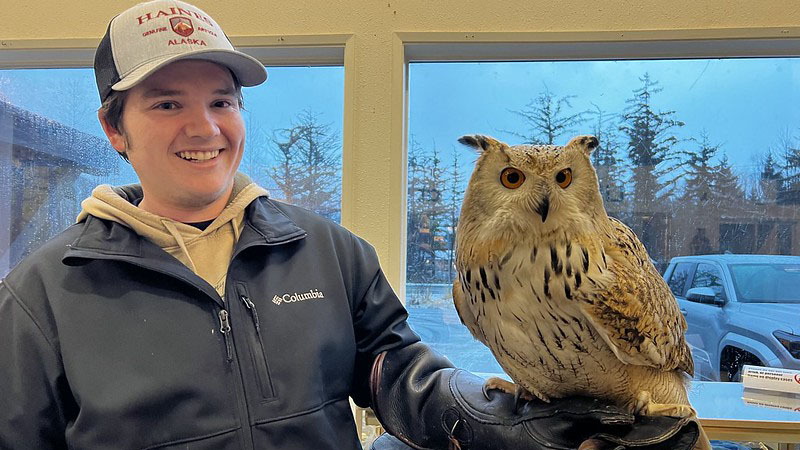

Sign up for free below to receive College of Agriculture news and the latest issues of The Season Magazine.
Alabama has been a stranger to the rain several times during the past few years. To prepare the state with more than just a forecast, the Alabama Drought Reach (ADR) program provides climate data statewide. The ADR program is a collaborative effort by the Auburn...
From the Coastal Plain to the Black Belt, Alabama cattle producers are utilizing forage systems to their advantage to meet the challenges of modern agriculture. Alabama ranks 17th nationally in beef cattle, according to the Alabama Cattlemen’s Association. Alabama...
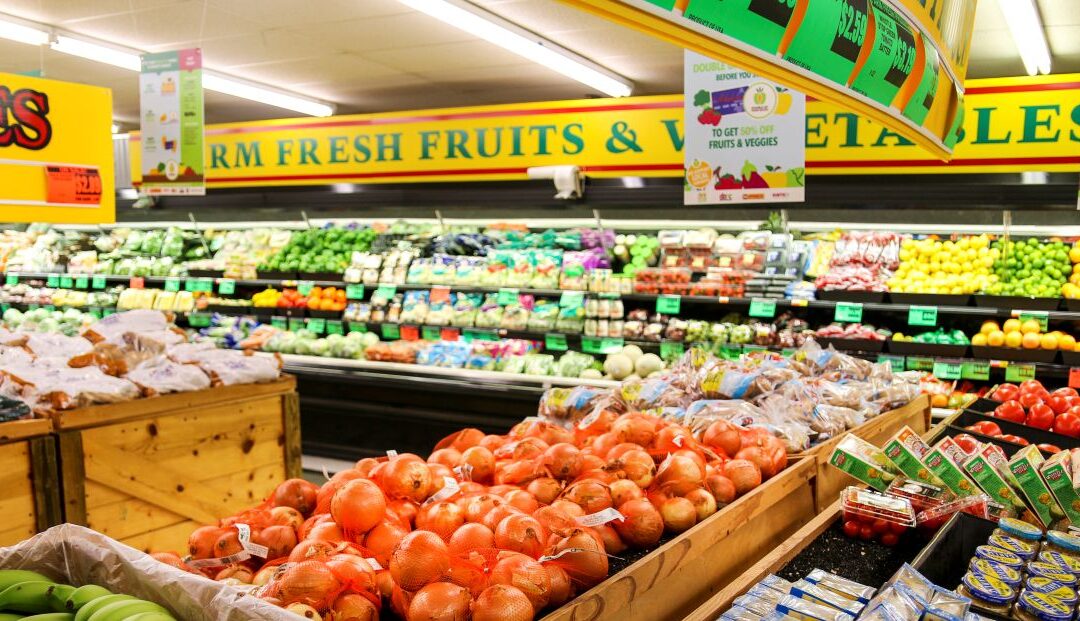
Double Up Food Bucks Alabama is enhancing communities by making fresh local produce more affordable and accessible at select grocery stores and farmers markets. The...
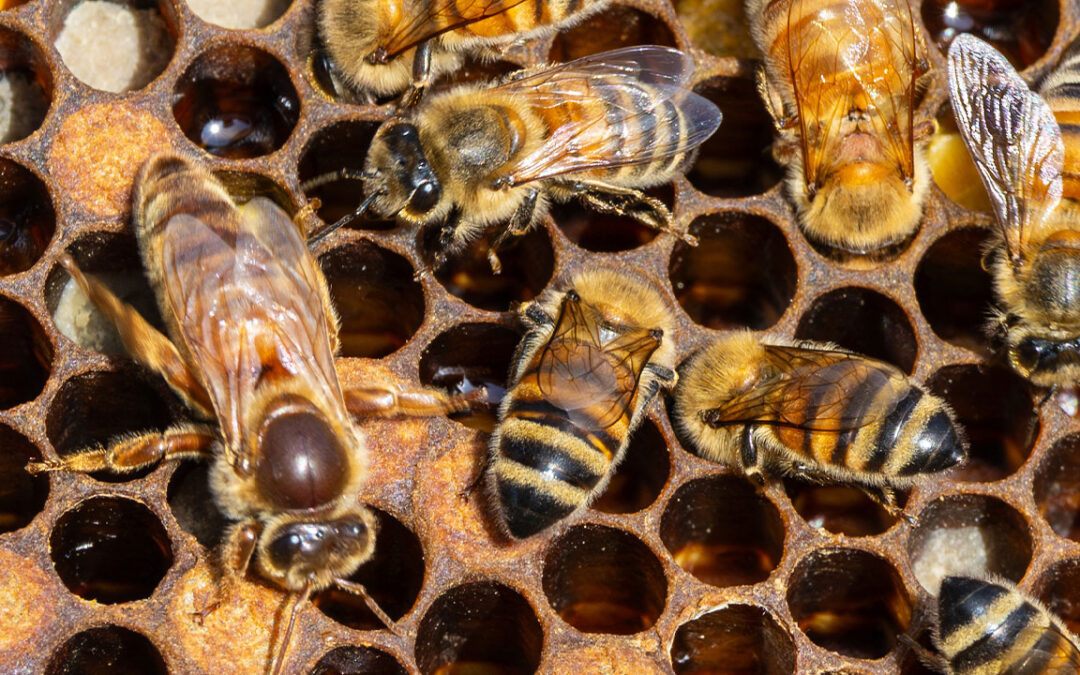
The annual U.S. Beekeeping Survey results are in for the 2024-2025 calendar year. In collaboration with Auburn University, the Apiary Inspectors of America, Oregon...
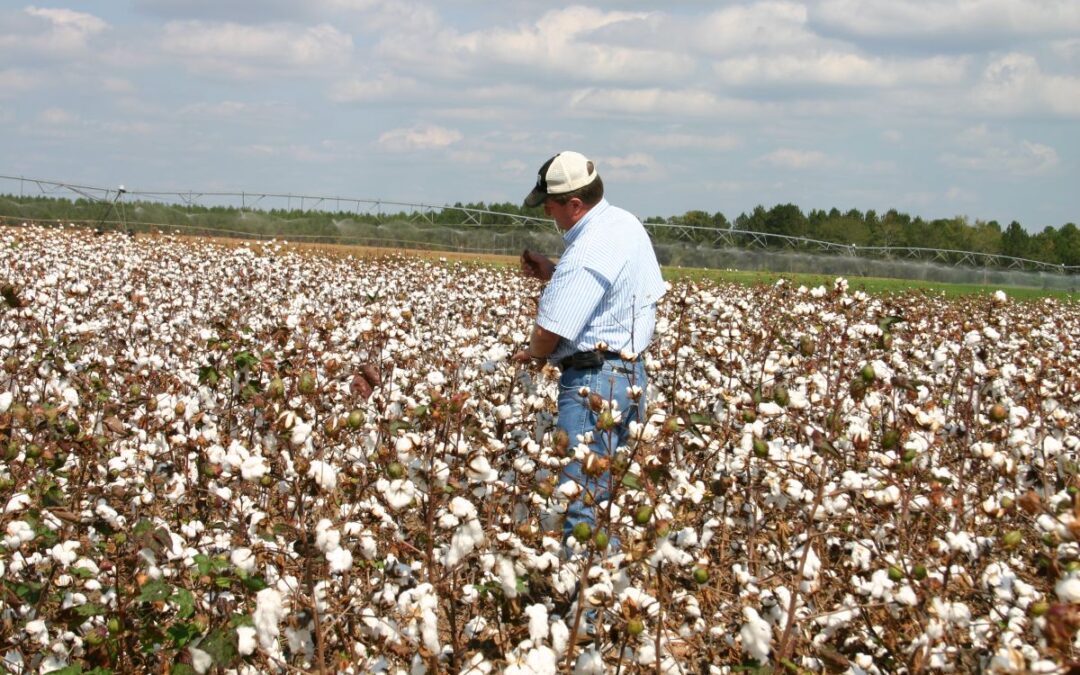
Cotton is undoubtedly one of the most recognizable plants in the world, with its heart-shaped leaves and branches that explode into powder-white fruit. But it’s also...
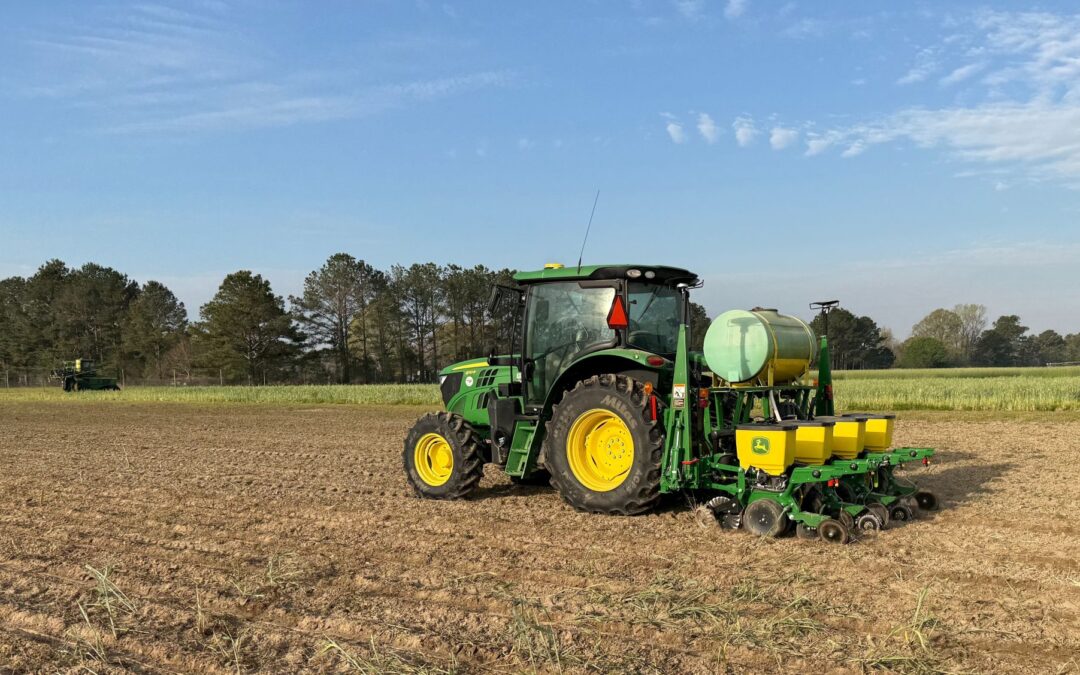
As spring planting shifts into high gear in farmers’ fields throughout the Southeast, few agricultural operations come close to matching the diversity of crops and locations as the outlying units of the Alabama Agricultural Experiment Station at Auburn University....

The Auburn University College of Agriculture and Campus Dining recently added four new container farms to its vertical farming operation. The four new farms, outfitted in shipping containers, are from AmplifiedAg, a leader in indoor agriculture. Auburn now has six...
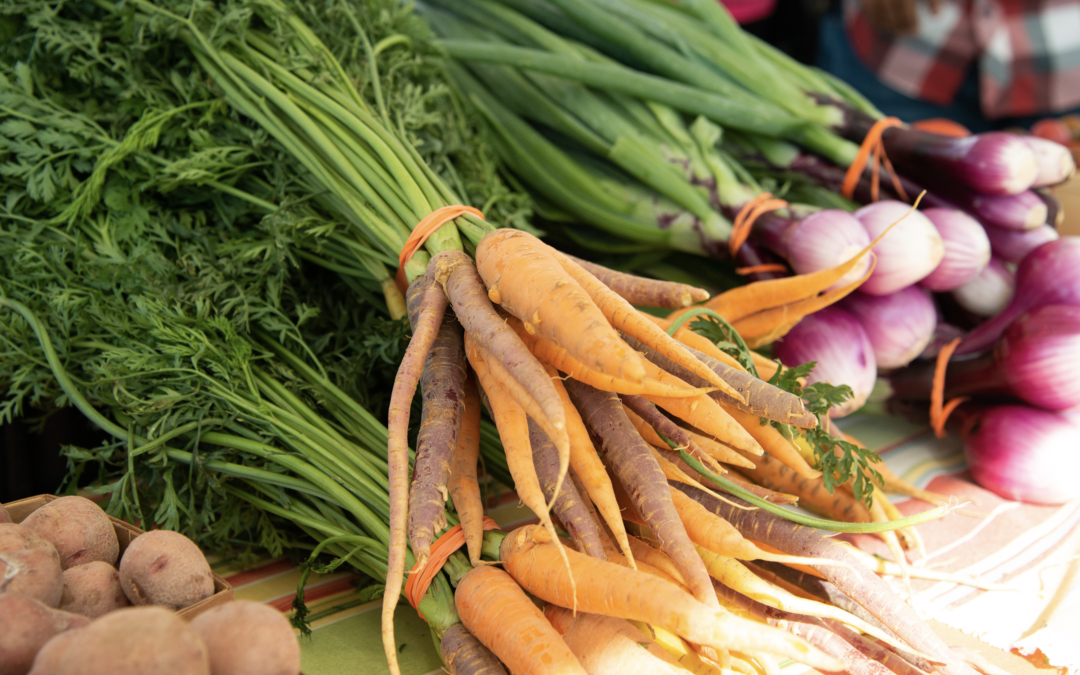
Hosted by the Auburn University College of Agriculture, The Market at Ag Heritage Park is an open-air, growers-only farmers market offering fresh, locally grown fruits and vegetables, herbs, ornamental plants and cut flowers as well as locally produced jams and...
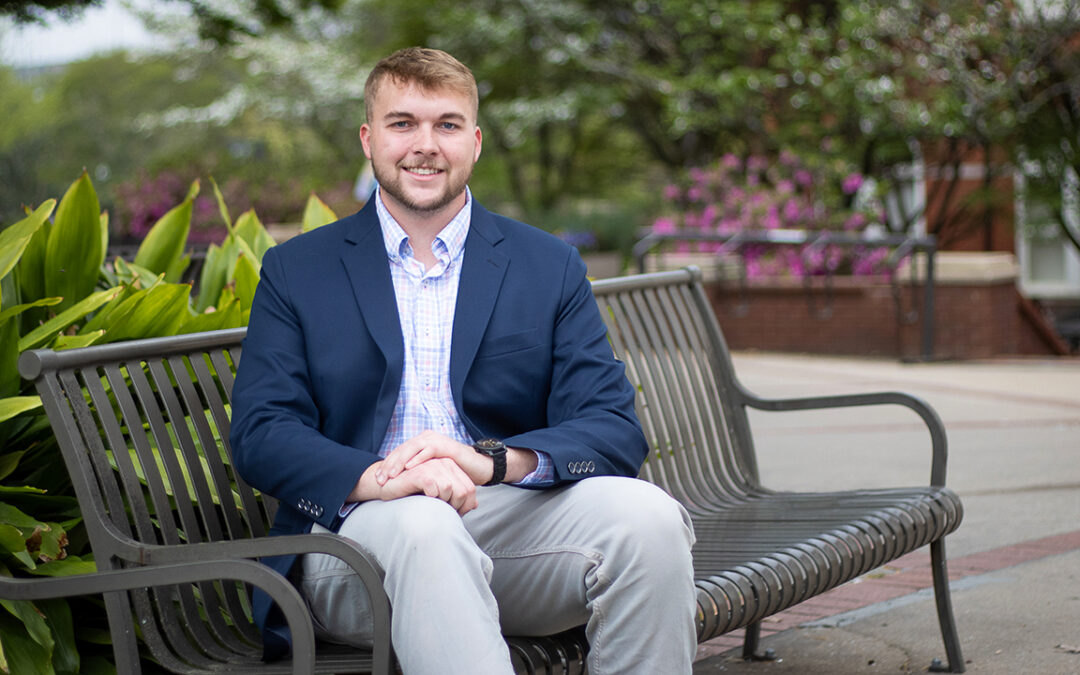
Advises future ag students to get involved The spring 2025 graduation marshal for the Auburn University College of Agriculture is a familiar face around Comer Hall. Will Rich was selected from among the agriculture spring graduates to represent the college at the...
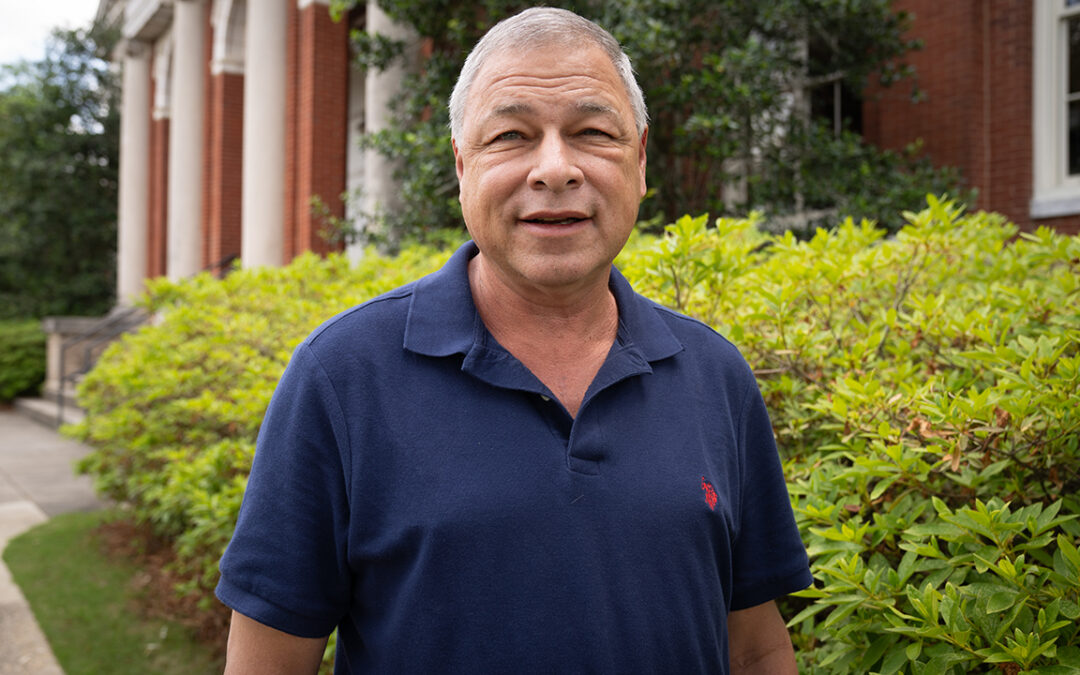
William Batchelor has been tapped as the new director of the Auburn University Water Resources Center, effective immediately. As director, he will lead a team of scientists working with communities, farmers, governments and agencies across Alabama to improve water...

Sudhanshu Kumar, a Ph.D. student in the Hydroclimate Research Group within the Department of Crop, Soil & Environmental Sciences, has been selected for the 2025 LEAP Summer Momentum Fellowship — a prestigious and highly competitive opportunity for doctoral...
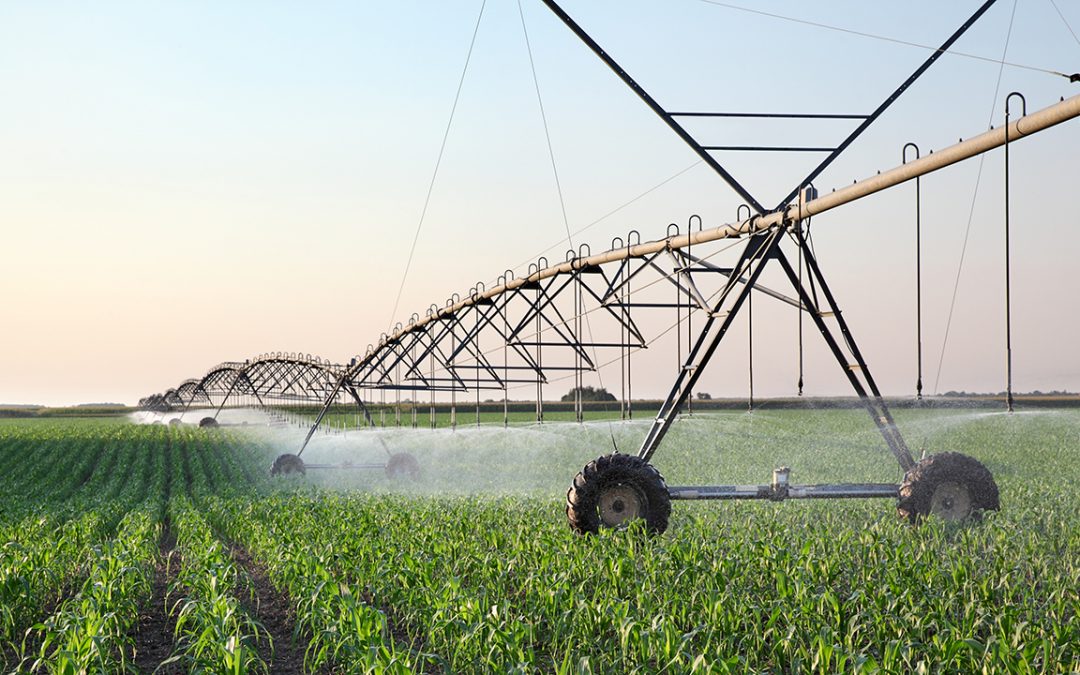
New model to help farmers make better investment decisions By Danielle Lunny Alabama farmers considering investing in irrigation equipment will soon have a free, comprehensive online tool to help them decide. A new prediction model will combine weather and economic...
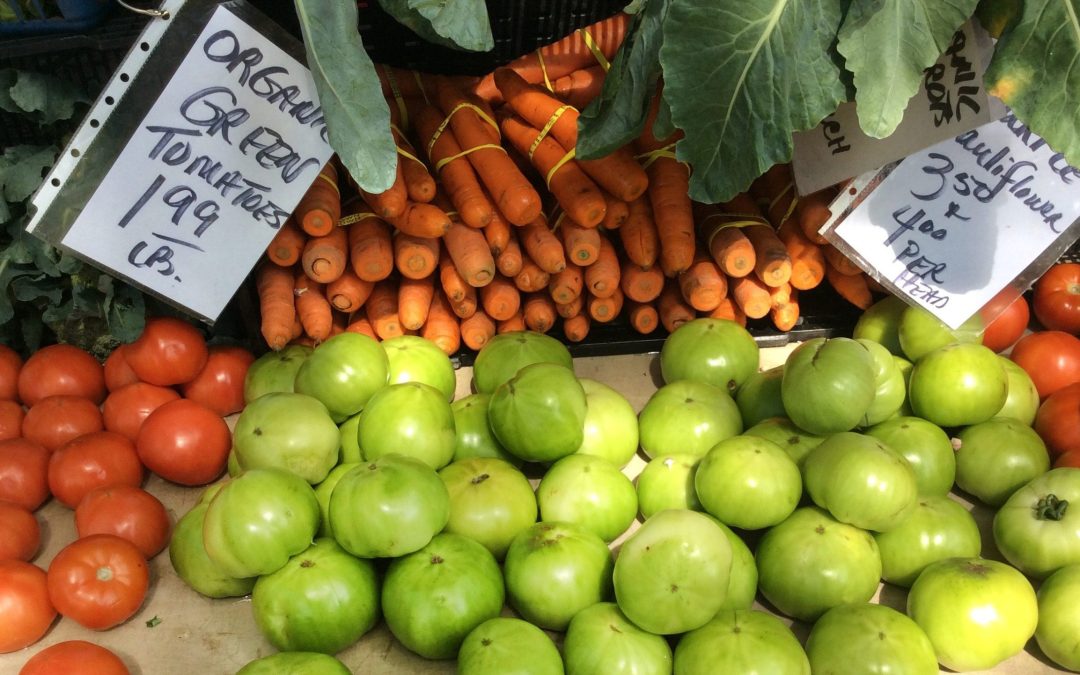
A recent study conducted by agricultural economists through the Alabama Agricultural Experiment Station examined consumers’ willingness to pay a premium for organic produce. In recent years, interest in organic produce has grown significantly; however, many...
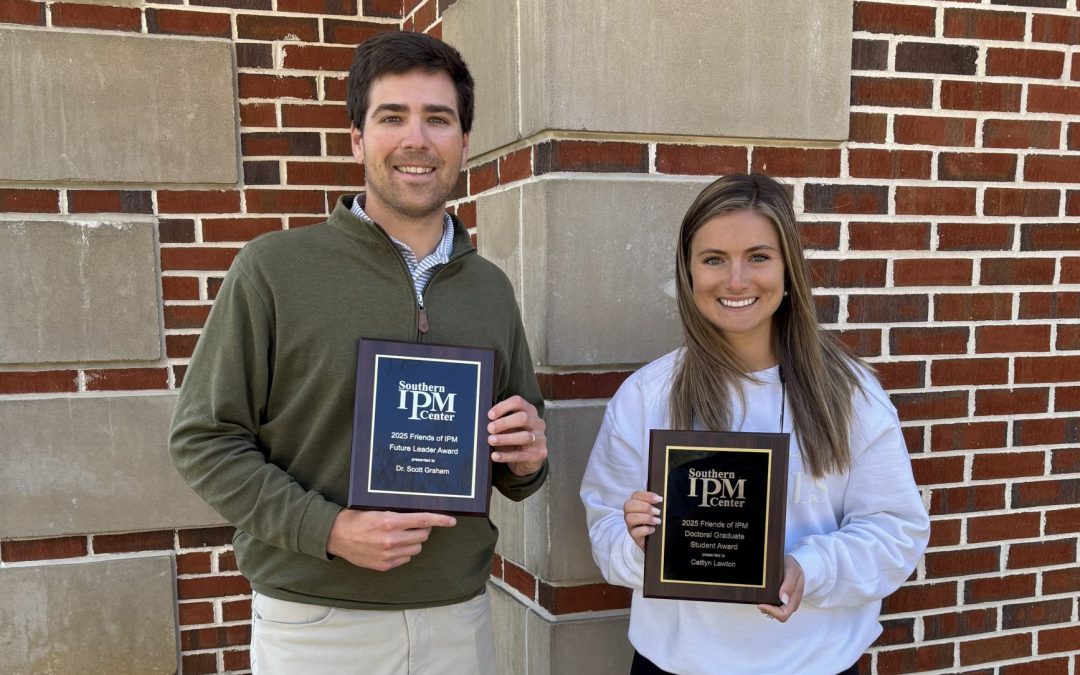
Auburn University graduate students and one faculty member rose above and beyond for this year’s Southern Integrated Pest Management (IPM) Awards. For the first time, two Auburn doctoral candidates, Caitlyn Lawton and Rogan Tokach, were honored for their achievements...
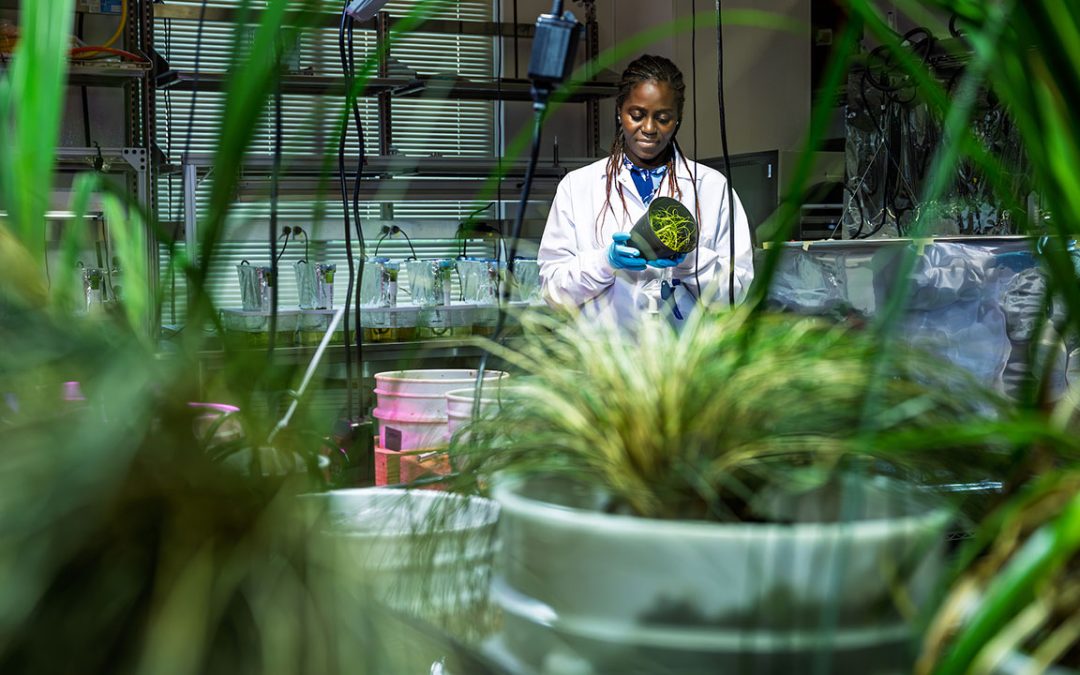
By Amy Weaver Contrary to what the name might suggest, the work currently happening in the Green Infrastructure Lab at Auburn has nothing to do with green-colored roads or buildings. No Emerald City here. “Green infrastructure is an approach to managing water and...
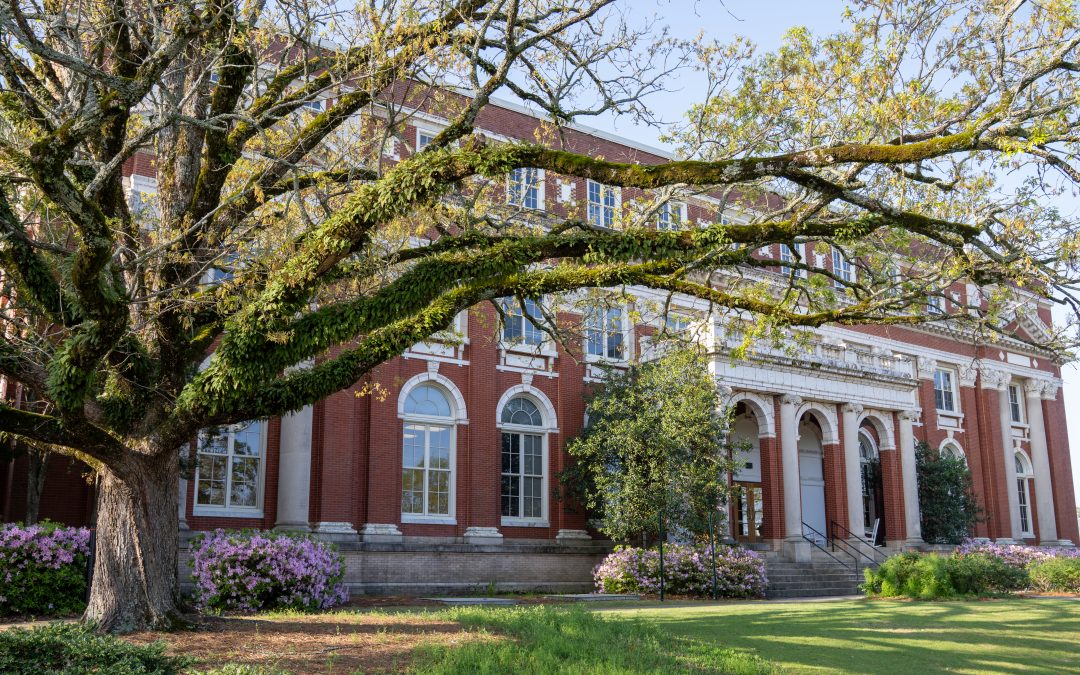
Three students in the College of Agriculture recently received distinguished honors from the Auburn University President’s Office. Savannah Busby received the Presidential Graduate Opportunity Fellowship, a highly competitive opportunity awarded to only a few incoming...

Following a national search, Mykel Taylor was named head of the Auburn University Department of Agricultural Economics and Rural Sociology, effective April 15. She had served as interim head of the department since fall 2024. “Dr. Taylor’s effective leadership, along...

The Alabama Water Resources Conferences is accepting abstract submissions until May 23. Submissions considered include lightning talks, standard oral presentations and poster presentations. For more information or to submit an abstract, visit the conference website at...
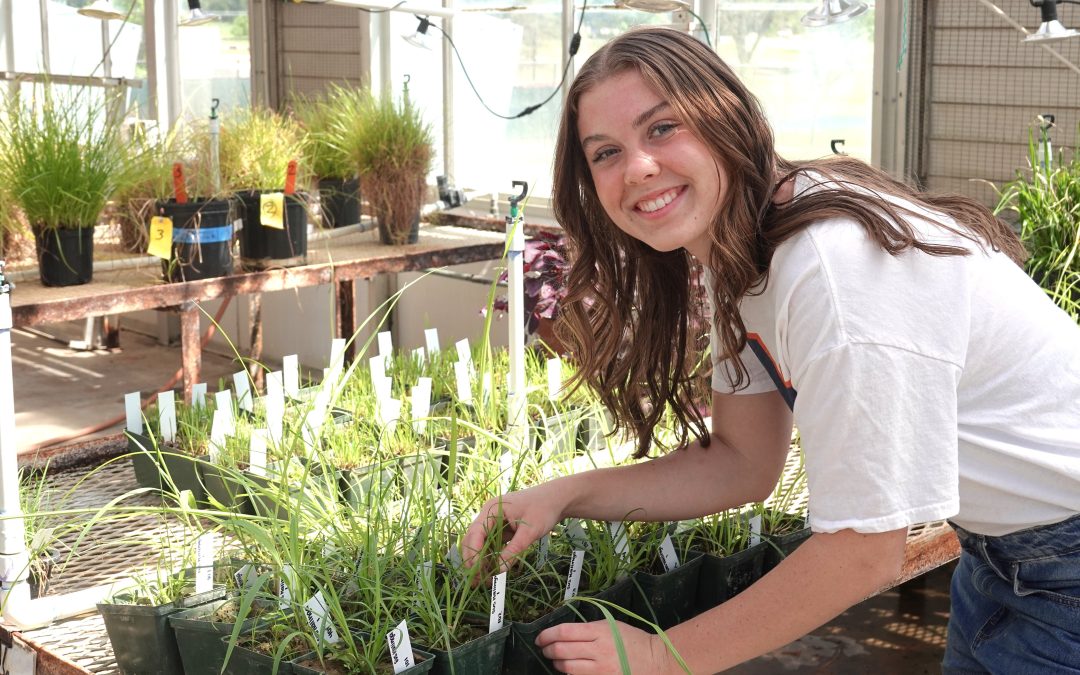
Auburn University College of Agriculture student Leah Johnson received a highly competitive collegiate internship with HudsonAlpha, a premier institute for biotechnology. She is the second student from the applied biotechnology major in the Department of Entomology...
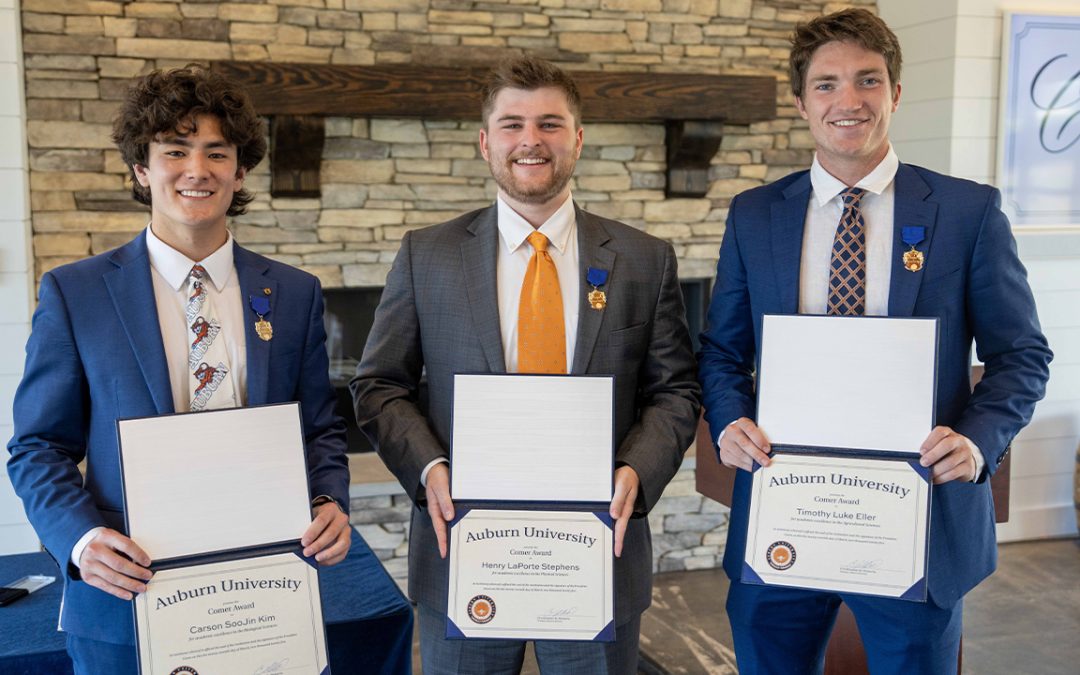
Hosted by the College of Sciences and Mathematics, in collaboration with the College of Agriculture, this year’s Comer Awards were presented to three graduating Auburn University students….
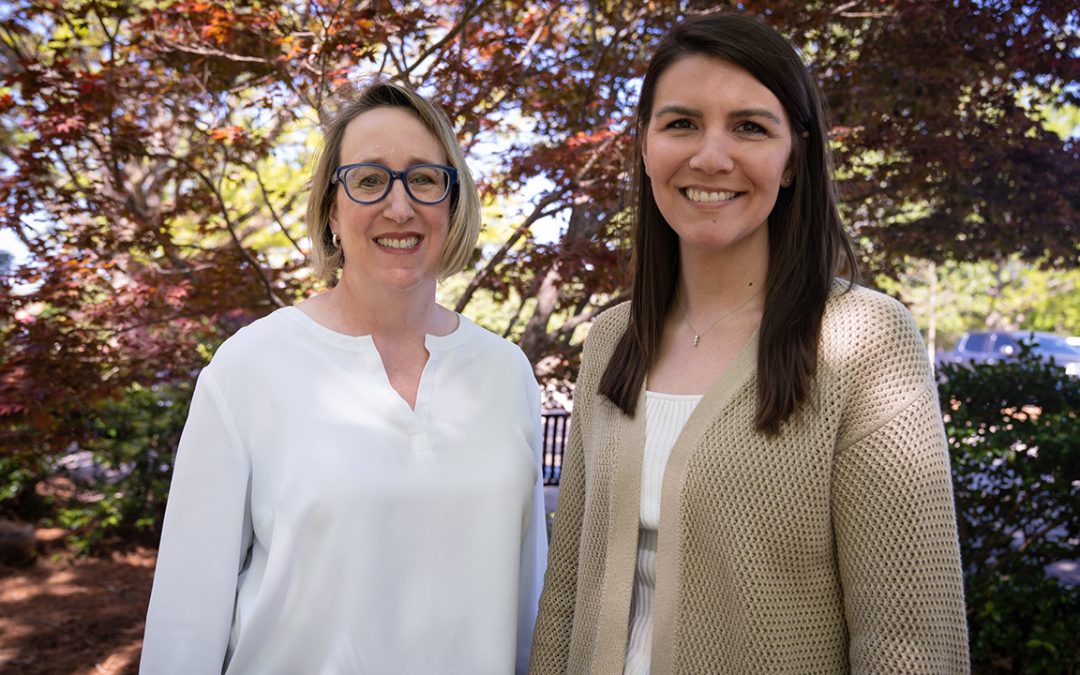
Alabama’s $123 billion agriculture industry has identified land loss, profitability and transportation infrastructure among its most pressing challenges in a recent report. The findings of the report will inform Gov. Kay Ivey’s strategic economic growth plan,...
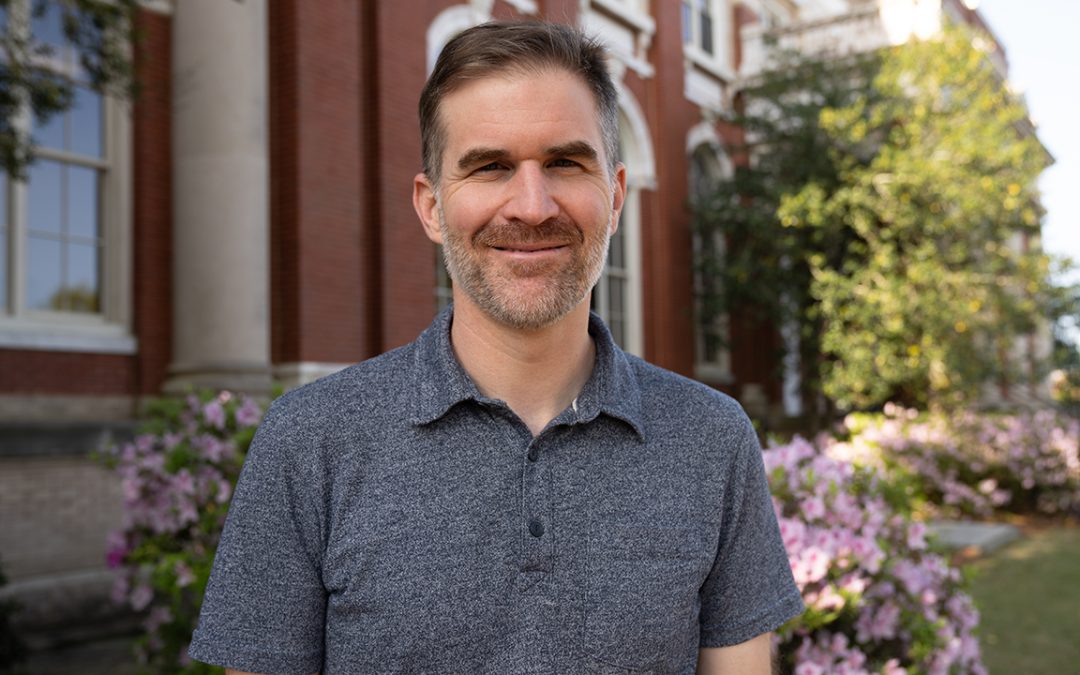
Geoff Williams, associate professor, graduate program officer and longtime director of the AU-Bees Lab, is director of the new Auburn University Bee Center, effective Tuesday, April 1. In February, the Board of Trustees approved the establishment of the Auburn...
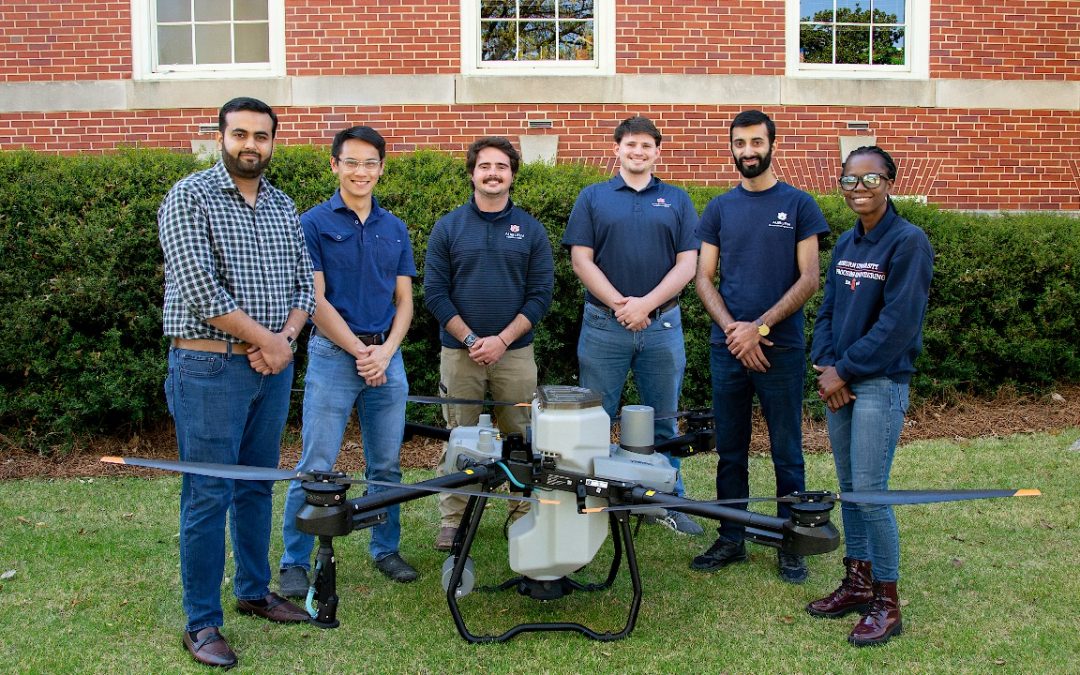
A team of both doctoral and undergraduate biosystems engineering students is tackling the age-old problem of precise fertilizer application with cutting-edge drone technology. According to NASA, they’re tackling it well.
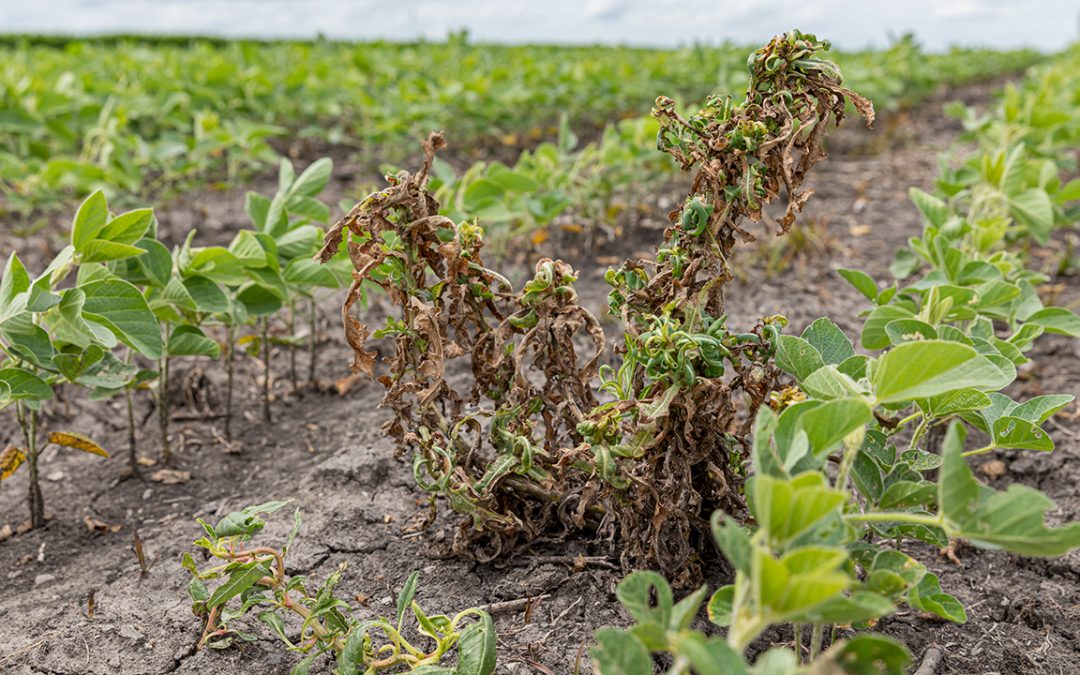
Auburn researchers help farmers adapt to EPA changes This year, major regulatory changes enacted by the Environmental Protection Agency (EPA) will affect farmers nationwide, specifically herbicide use for soybean and cotton producers. For 2025, dicamba herbicide...
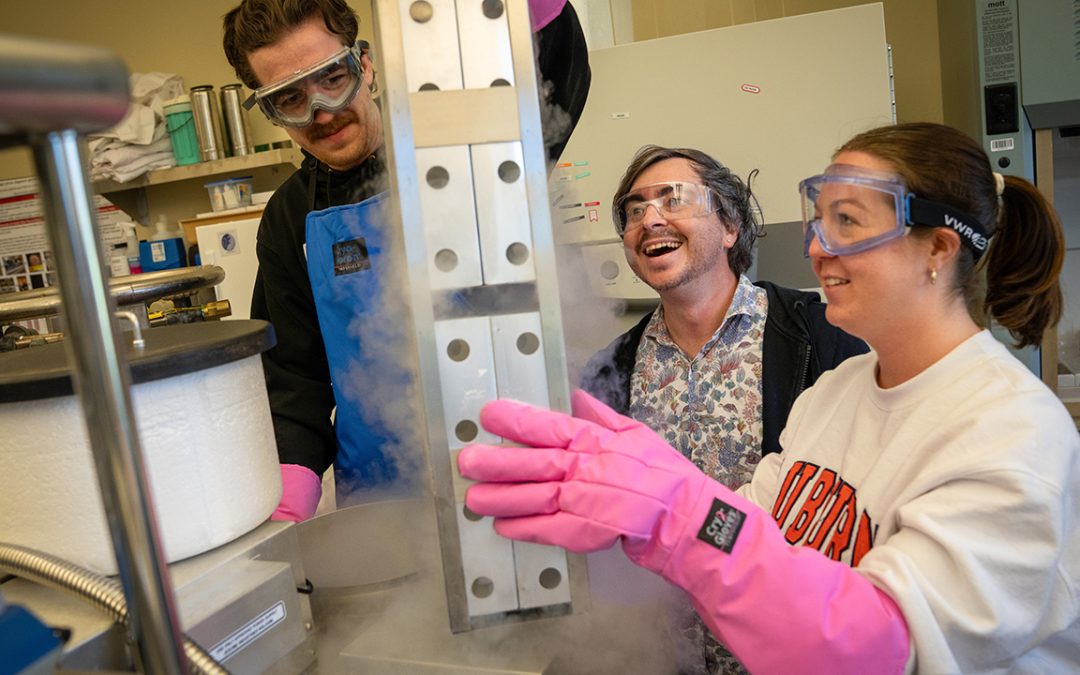
Better breeding ability would make catfish farming more efficient and profitable The $437 million U.S. catfish industry is in need of better genetic and breeding technologies to be competitive with foreign imports. Recently, Auburn scientists have made advances in...
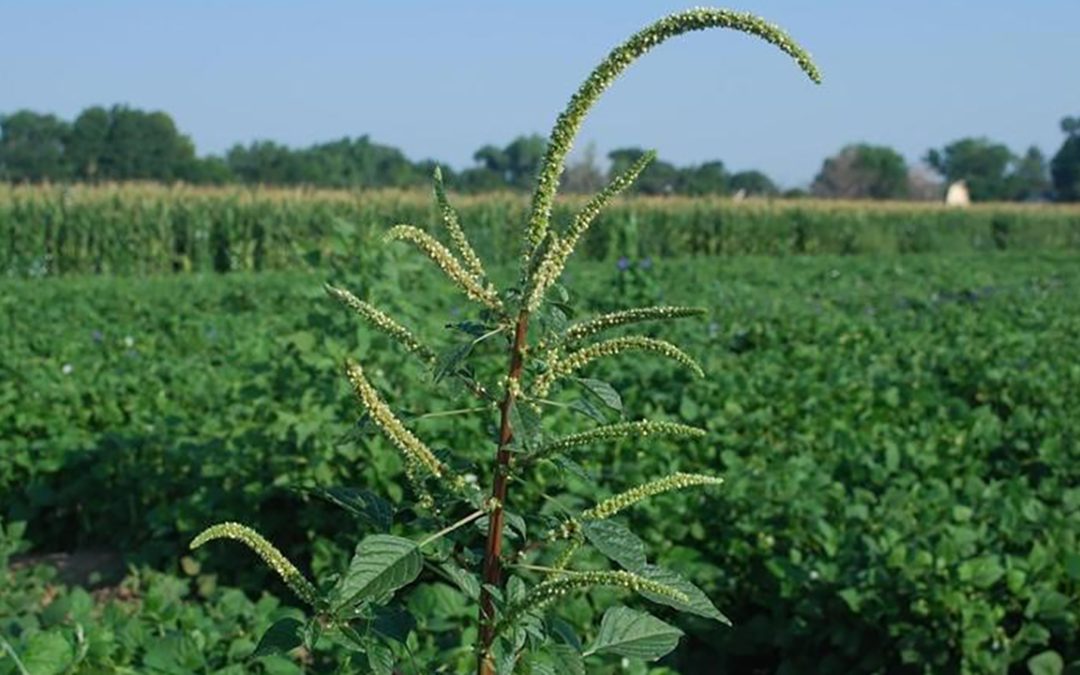
Imagine a weed that can produce 600,000 seeds per plant and grow as much as 2.5 inches per day. Such a weed exists, and it’s not being grown somewhere in a secure lab — it’s widespread in the fields of Alabama farmers and throughout the United States. This “super”...

Alabama’s $123 billion agriculture industry has identified land loss, profitability and transportation infrastructure among its most pressing challenges in a recent report. The findings of the report will inform Gov. Kay Ivey’s strategic economic growth plan,...

Imagine a weed that can produce 600,000 seeds per plant and grow as much as 2.5 inches per day. Such a weed exists, and it’s not being grown somewhere in a secure lab — it’s widespread in the fields of Alabama farmers and throughout the United States. This “super”...
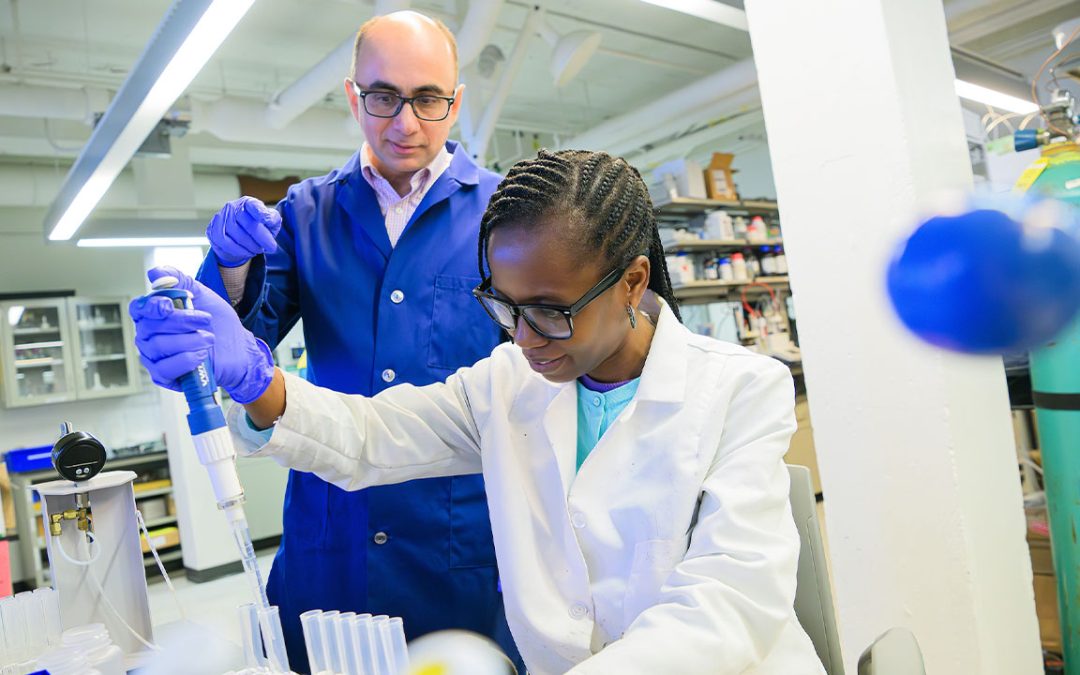
The Southeastern Conference (SEC), on Feb. 24, named Sushil Adhikari as Auburn’s honoree for the SEC Faculty Achievement Award.
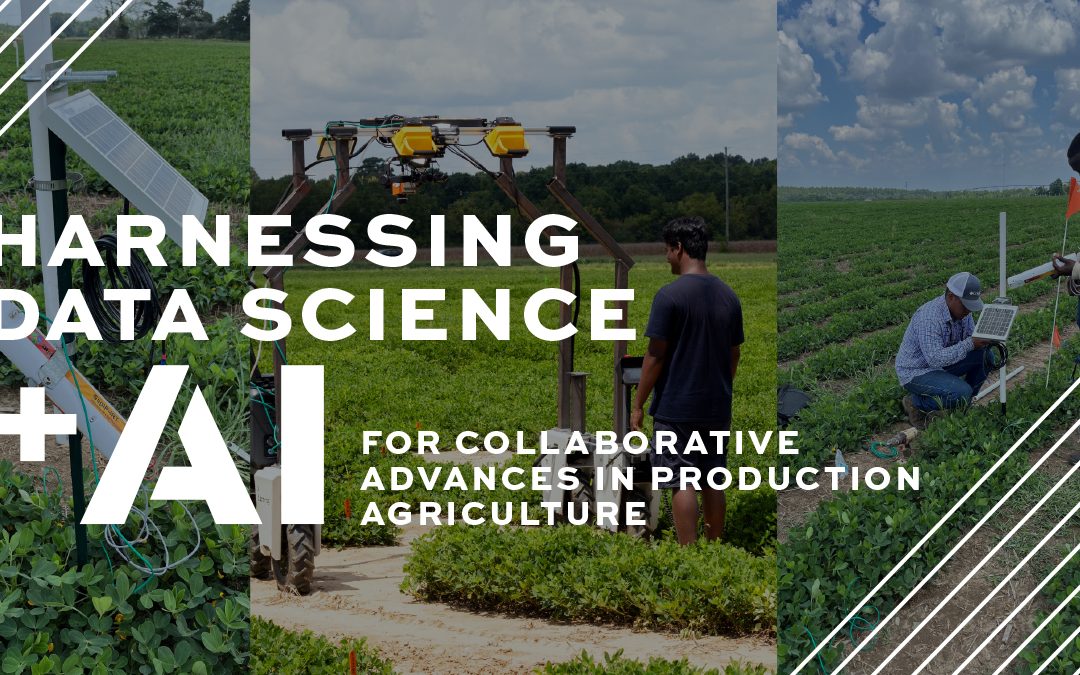
Forum to be held 7:30 a.m. to 4:30 p.m. Monday, April 21 Auburn University faculty researchers from the Colleges of Agriculture, Sciences and Mathematics, and Engineering seek to advance innovations in agriculture and natural resources. Together, they are hosting a...
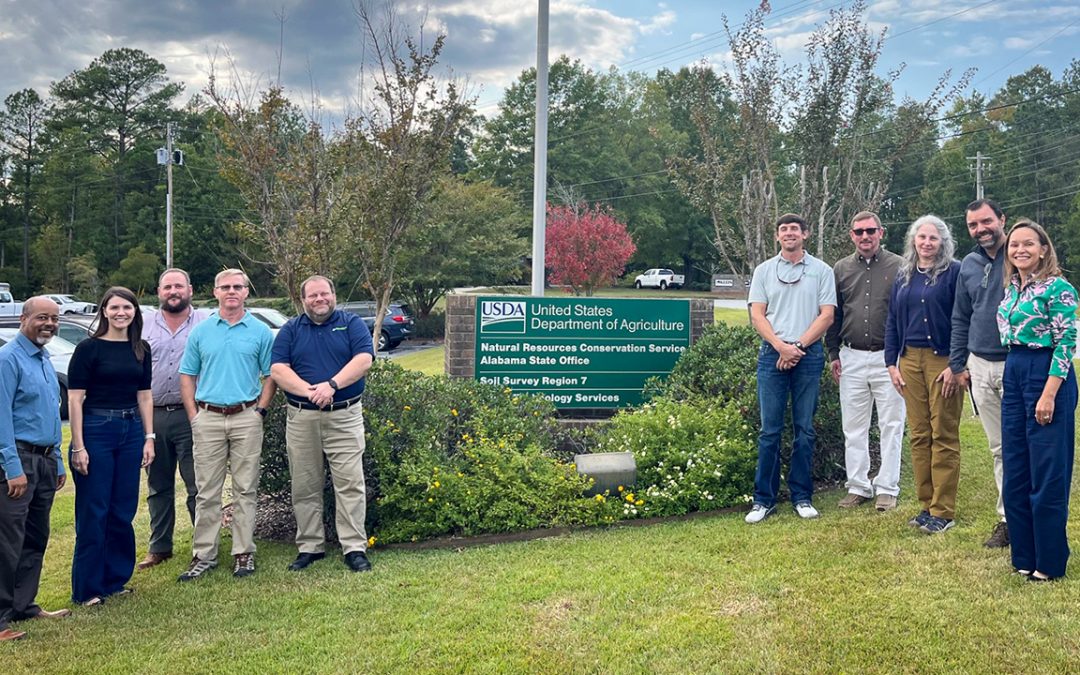
Auburn University researchers and Alabama Extension specialists are taking their expertise from labs and small experimental plots to Alabama farmers’ fields with a $4 million grant from the Natural Resources Conservation Service (NRCS). The grant aims to increase...
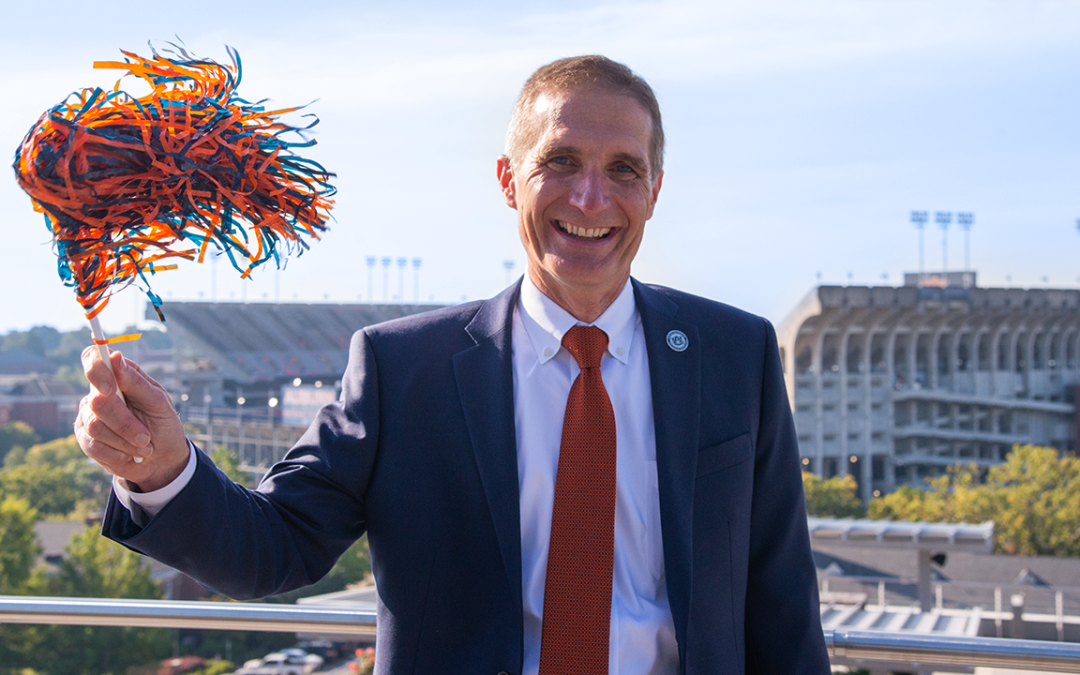
As 2024 draws to a close, Paul Patterson is stepping away from his roles as dean of the College of Agriculture and director of the Alabama Agricultural Experiment Station, effective Jan. 1. He led both to record numbers in the areas of teaching, research and outreach since he assume the positions in March 2016…
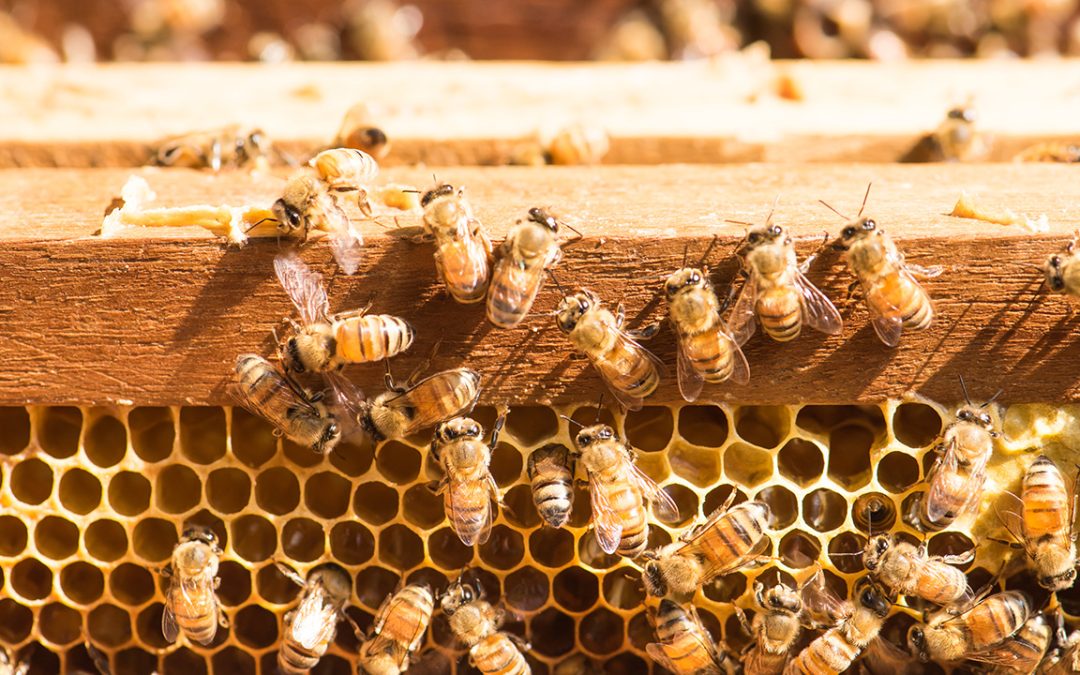
The annual U.S. Beekeeping Survey, designed and administered by Auburn University and Apiary Inspectors of America, indicates the highest colony losses since the 2010-11 beekeeping season, when colony loss rates were first determined. U.S. beekeepers lost an estimated...
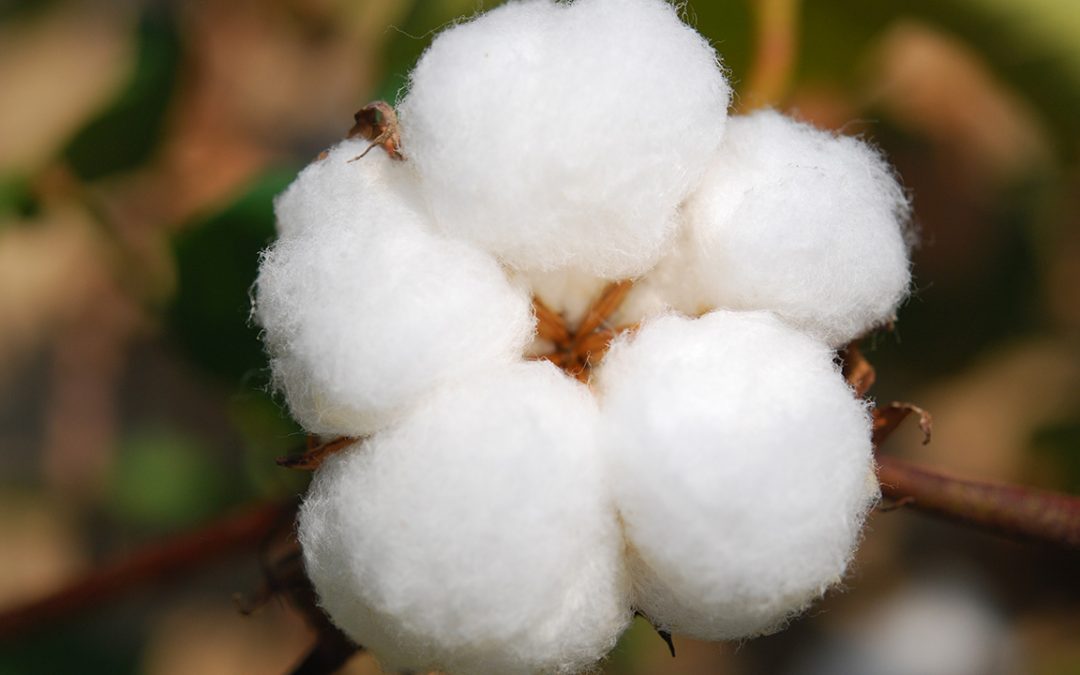
Auburn University’s Kip Balkcom, Eddie McGriff and Simerjeet Virk will be among the researchers presenting at the National Conservation Systems Cotton and Rice, Southern Soybean and Corn, Delta States Irrigation and Southern Precision Ag conferences being held Jan. 27...
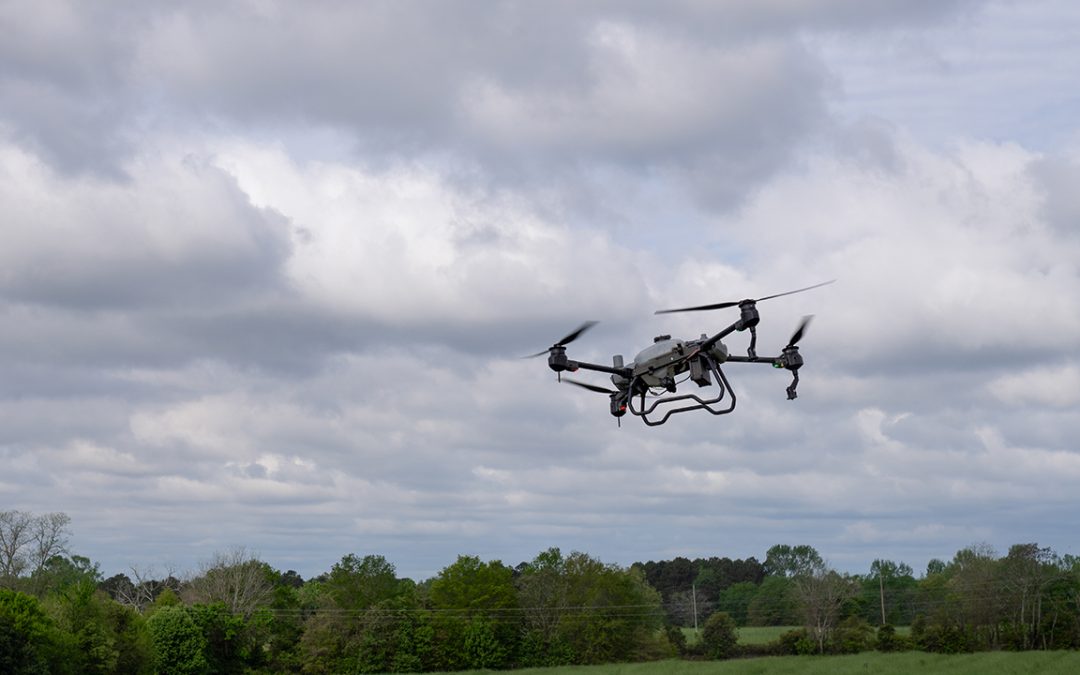
Auburn-developed method could advance efforts to breed a drought-tolerant peanut Auburn University researchers have devised a new means of measuring the physiological characteristics of peanut plants that should prove to be instrumental in speeding the breeding...
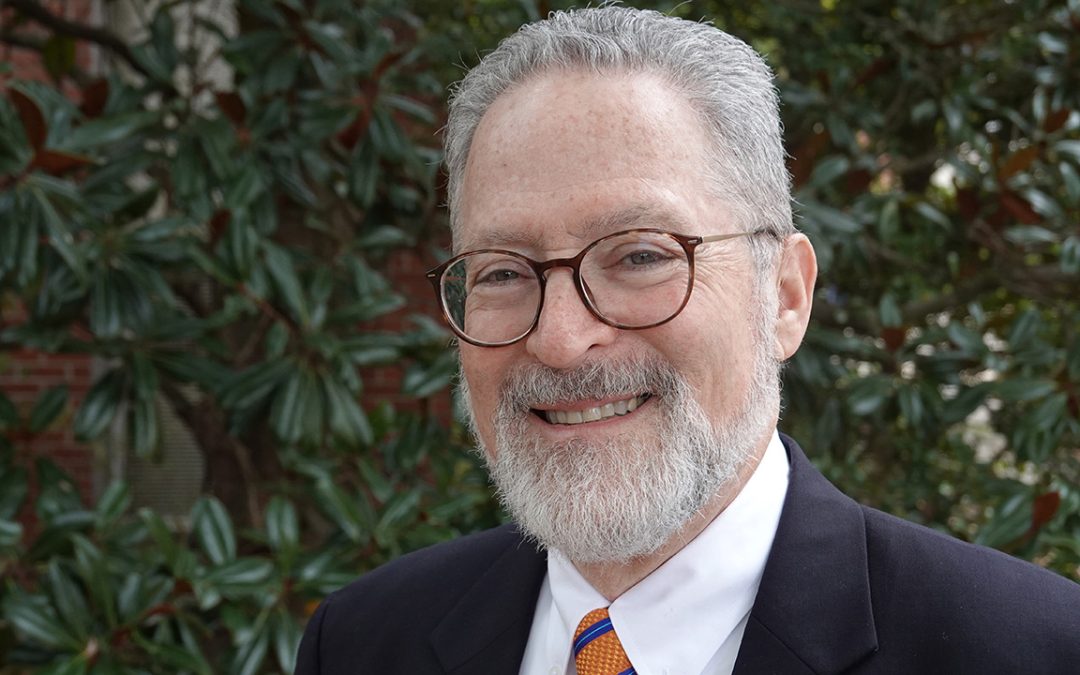
Arthur Appel will serve as interim dean of the Auburn University College of Agriculture and interim director of the Alabama Agricultural Experiment Station, effective Jan. 1. Appel has served in his current role as associate dean for research and assistant director of...
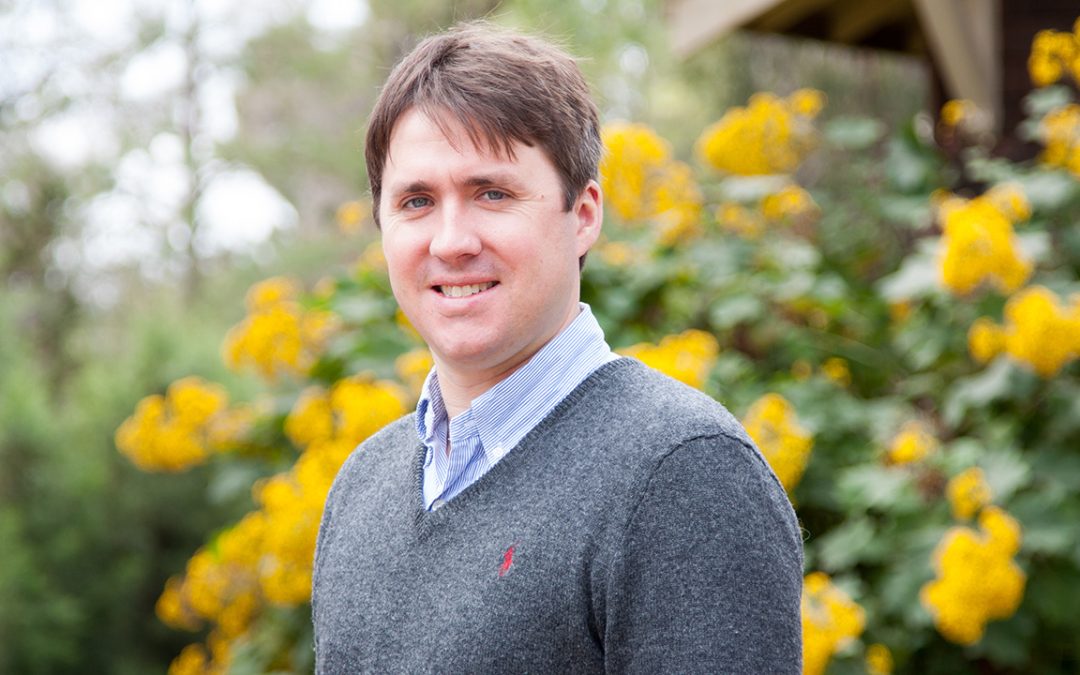
Andrew L. Rypel will serve as director of the Auburn University School of Fisheries, Aquaculture and Aquatic Sciences, effective March 22. He comes from the University of California at Davis, where he currently serves as director of the Center for Watershed Resources...
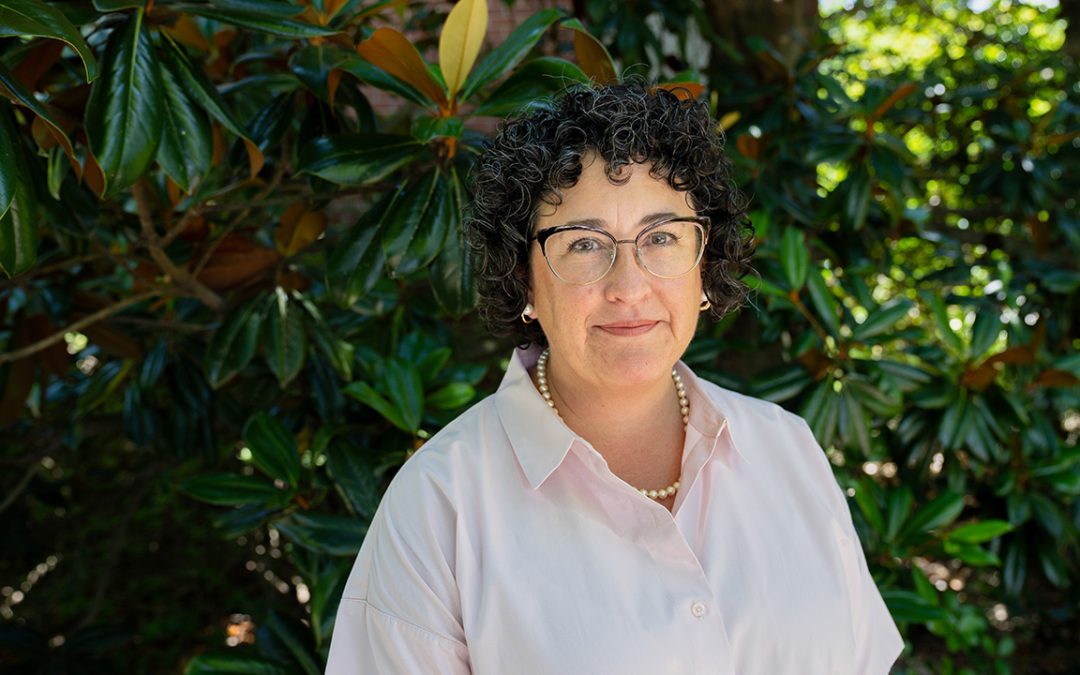
Amy Wright, professor of horticulture and associate dean for instruction, was named an American Society for Horticultural Science Fellow at the society’s annual conference Sept. 23-27. ASHS is globally recognized as one of the most respected and influential...
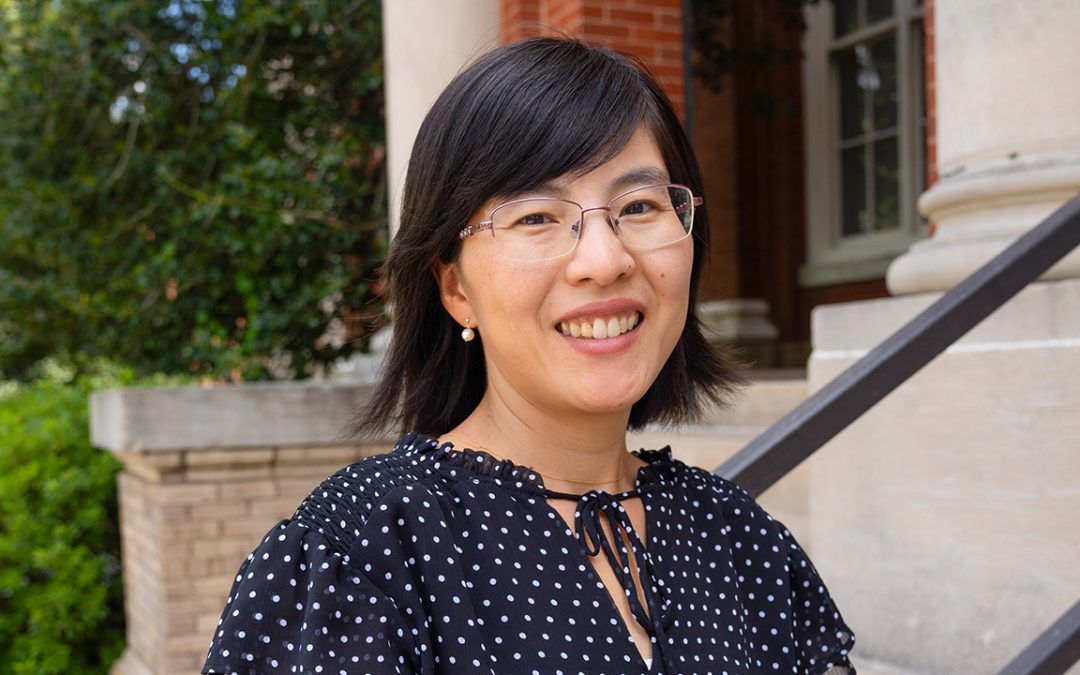
Sushan Ru, assistant professor of horticulture, won first place in the Early Career Competition at the American Society for Horticultural Science Annual Conference Sept. 23-27. ASHS is globally recognized as one of the most respected and influential professional...
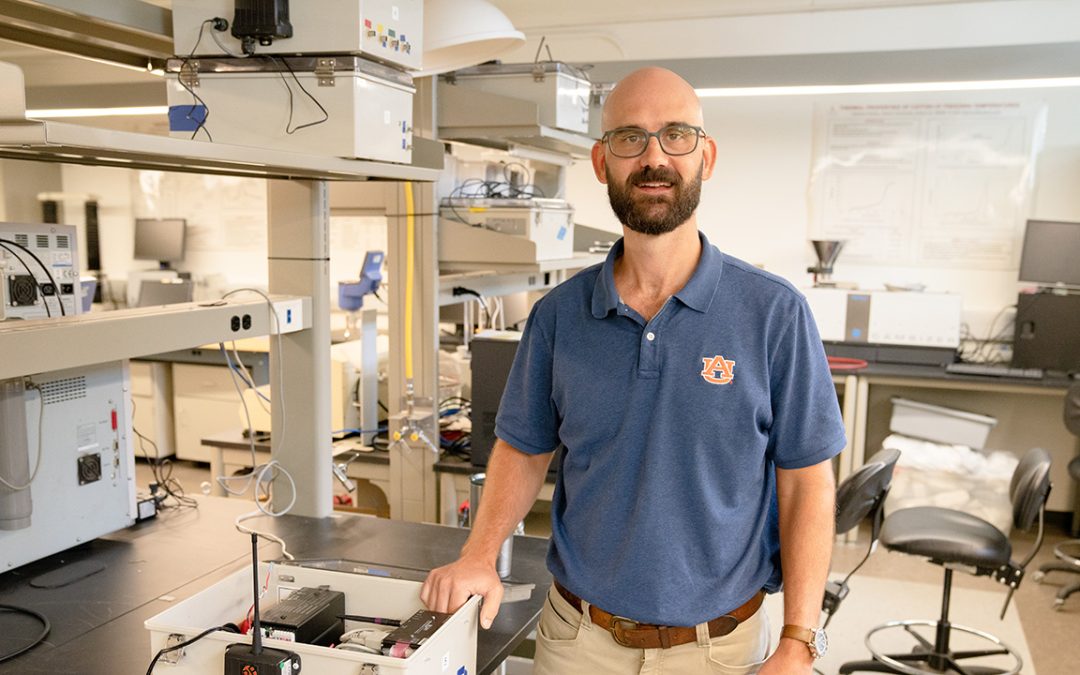
The average broiler chicken lives 6–8 weeks and spends much of that time indoors, but researchers at Auburn University are investigating the use of natural light in broiler houses and its effects on bird performance and welfare. A team of agricultural engineers,...
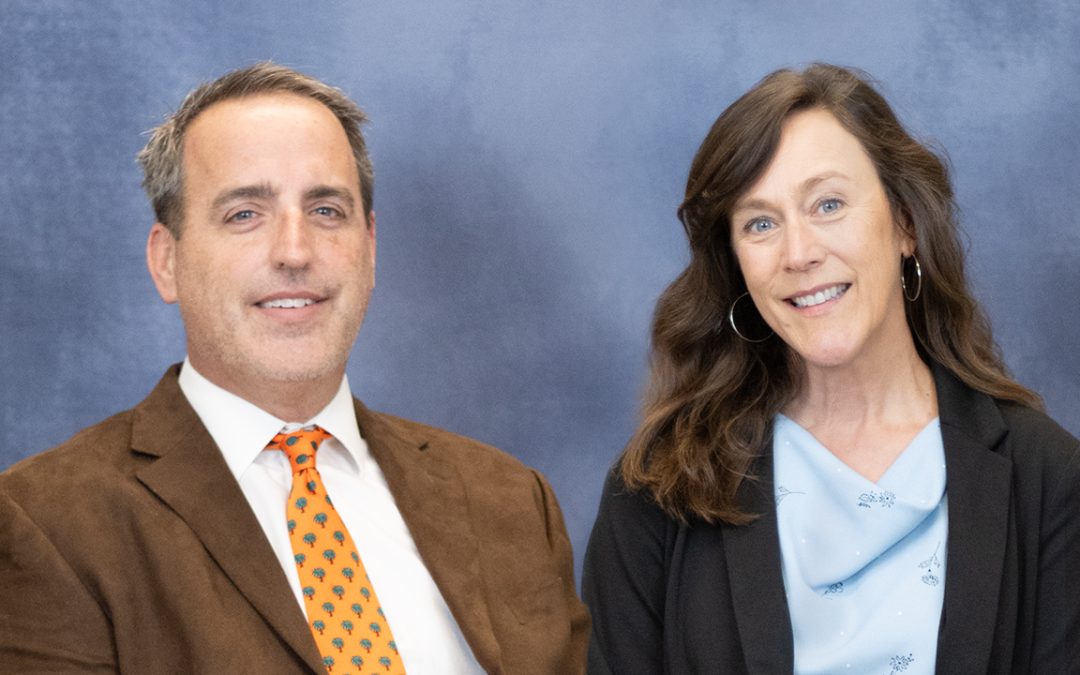
Two College of Agriculture faculty members were announced among Auburn University’s five 2024 Alumni Professors Sept. 20. Eve Brantley, a professor and associate director of the Alabama Cooperative Extension System, is a renowned expert in water quality and...
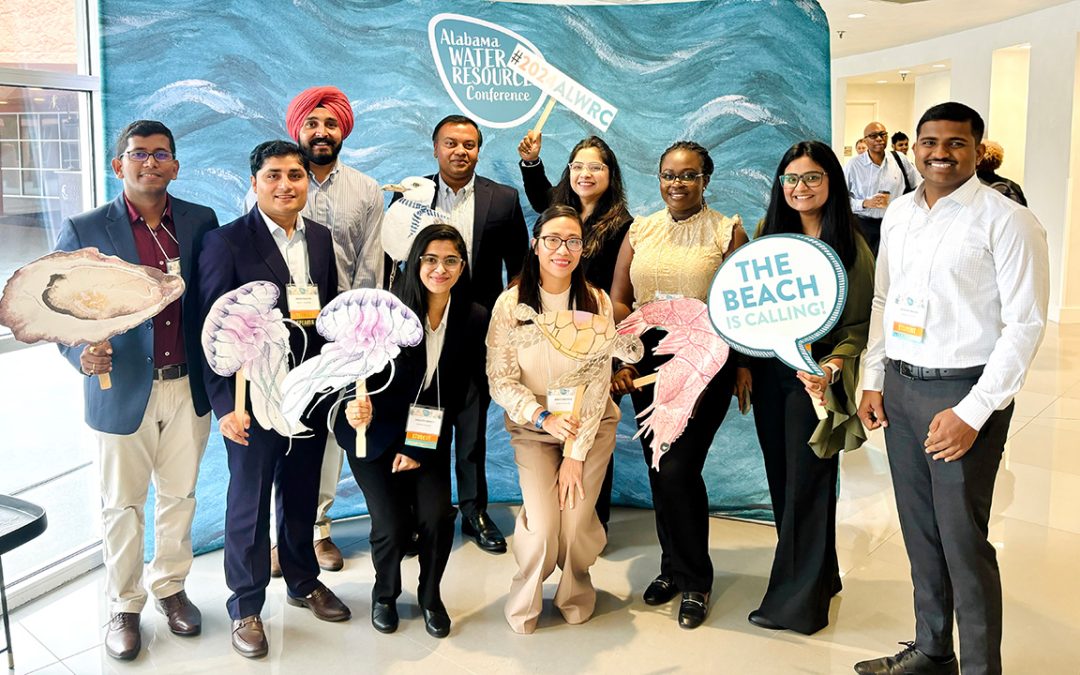
The Auburn University Water Resources Center welcomed a record 370 attendees to its annual Alabama Water Resources Conference in Orange Beach Sept. 4-6. The conference has been held since 1987. This year’s conference included eighty undergraduate and graduate students...
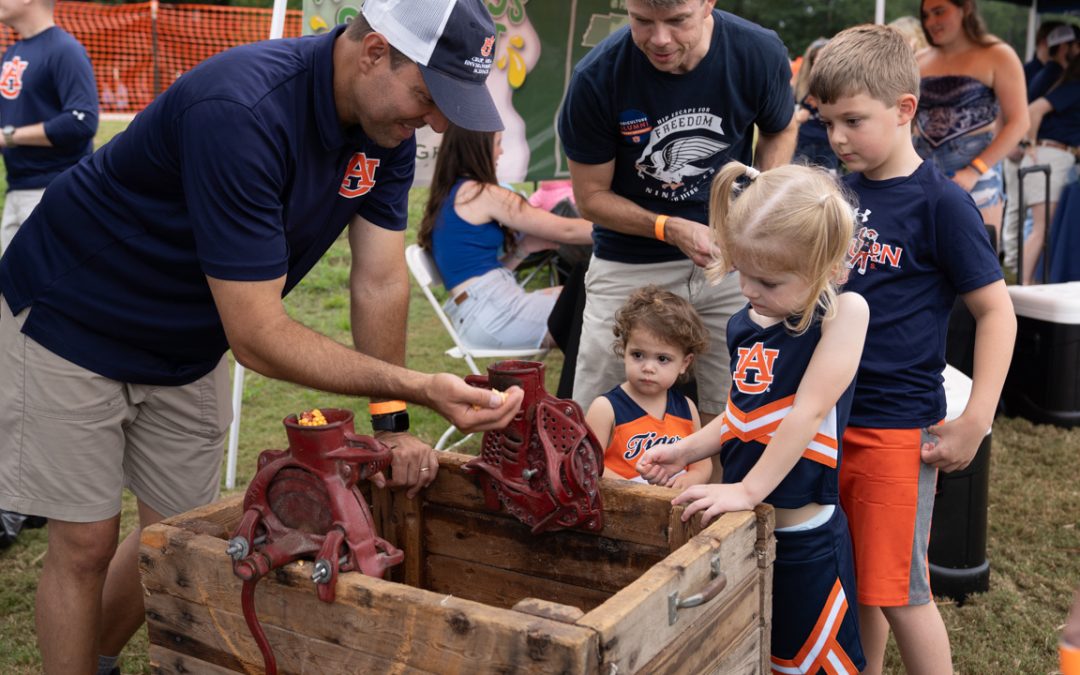
The 45th annual Ag Roundup, hosted by the Auburn Agricultural Alumni Club and Auburn University College of Agriculture, will take place Sept. 14, 3:30-5:30 p.m., at Ag Heritage Park on the Auburn campus. The event is a Homecoming weekend tradition for alumni and...
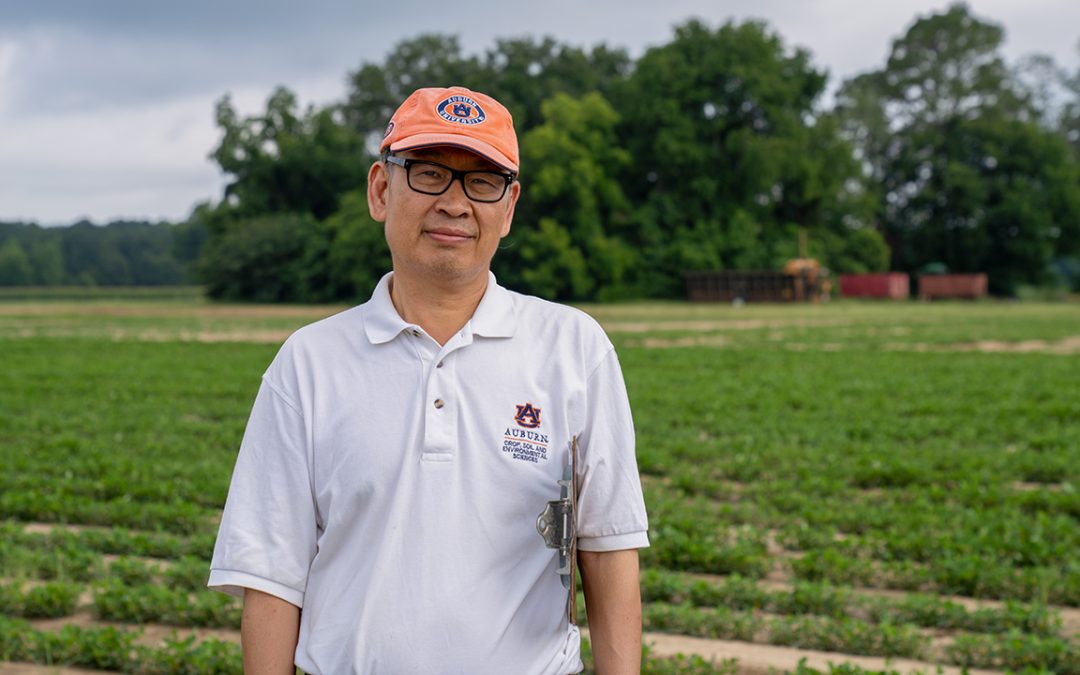
The Auburn University peanut breeding program has made significant strides in a surprisingly short amount of time, with one of its varietal releases now commanding 40-50% of the peanut acreage in Alabama.
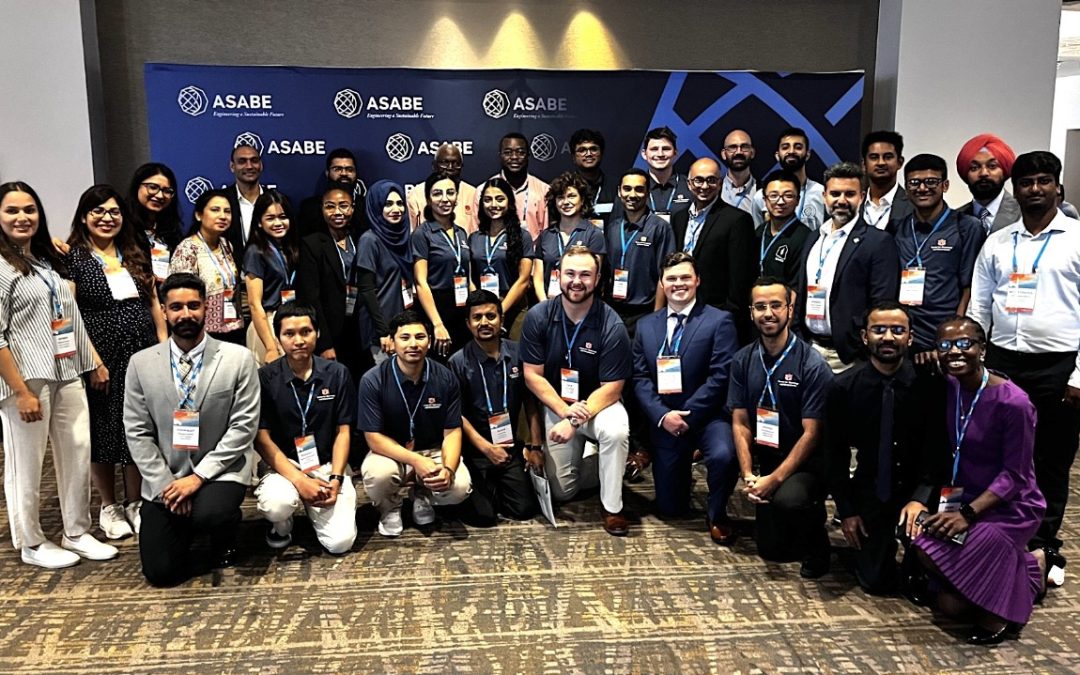
Jeremy Henderson Auburn University's Department of Biosystems Engineering (BSEN) was hard to miss at the 2024 American Society of Agricultural and Biological Engineers (ASABE) Annual International Meeting recently held in Anaheim, California. And hard to beat. Auburn...
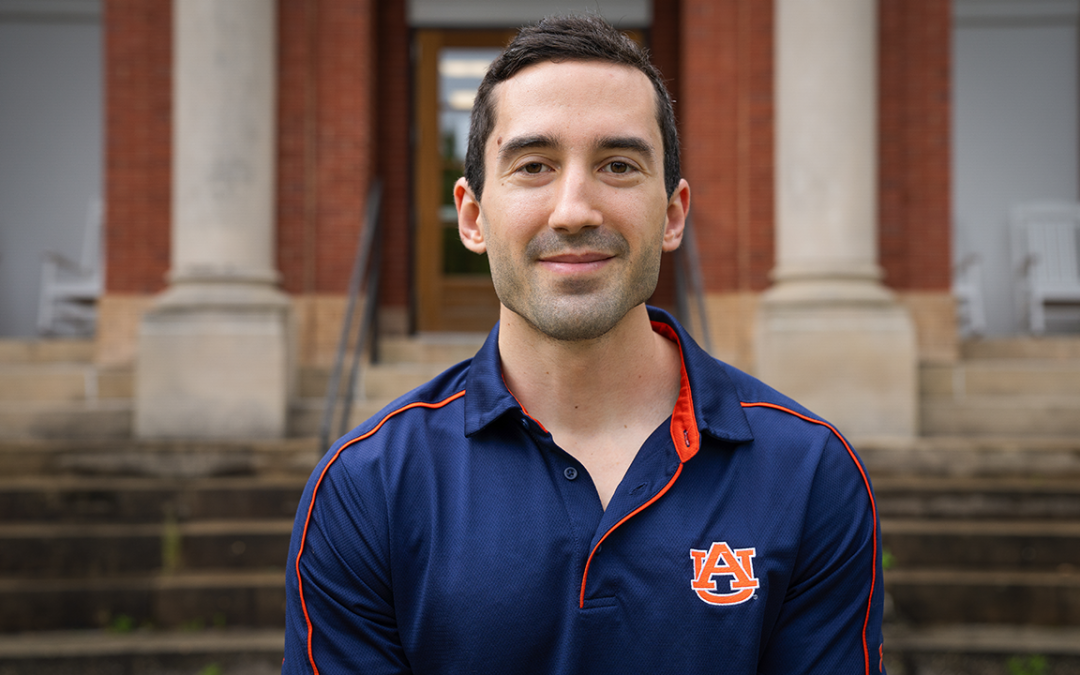
As John Mahas prepared for a move to start postdoctoral research at Cornell University, he was still wrapping up research in the Auburn University lab where he earned his master’s and doctorate. It was here he focused his work on managing the emerging cotton leafroll dwarf virus (CLRDV) and its vector, the cotton aphid, Aphis gossypii. This research led to the publication of two peer-reviewed papers, one of which marked a first in the Southeastern United States.

As a project manager with Auburn’s Water Resource Center, Cooley manages watershed restoration projects and educates communities on how to care for rivers, streams and creeks.